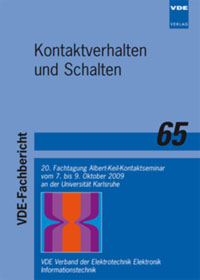Arc Faults in Residential Electrical Systems
Conference: Kontaktverhalten und Schalten - 20. Fachtagung Albert-Keil-Kontaktseminar an der Universität Karlsruhe
10/07/2009 - 10/09/2009 at Karlsruhe, Germany
Proceedings: Kontaktverhalten und Schalten
Pages: 8Language: englishTyp: PDF
Personal VDE Members are entitled to a 10% discount on this title
Authors:
Pahl, Birger; Schöpf, Thomas J.; Zhou, Xin (Eaton Corporation, Innovation Center, Milwaukee, WI, USA)
Hetzmannseder, Engelbert (Eaton / Moeller, Gebäudeautomation GmbH, Vienna, Austria)
Abstract:
Today, roughly 20 % to 30 % of all annual residential fire hazards can be attributed to electrical faults. A variety of arc faults are considered to be the major initiator of electrical incidents. A new type of circuit protection to also address arc faults besides the faults causing overload and short circuit currents has entered the market as well as the National Electric Code(R) in the US in 2008: the combination-type Arc Fault Circuit Interrupter (AFCI). There are more than 35 million AFCIs installed in North American homes today. Recently, a working group under the International Electrotechnical Commission (IEC) began to actively work to develop a standard for an Arc Fault Detection Device (AFDD) for the IEC market. In this paper, the US and European based team of authors address this topic by reviewing selected elements of the American UL 1699 standard, discuss the impact of different power systems (120 V, 240 V/60 Hz, 230 V/50 Hz) and wiring practices on arc faults, and their potential consequences as well as means for mitigation.


